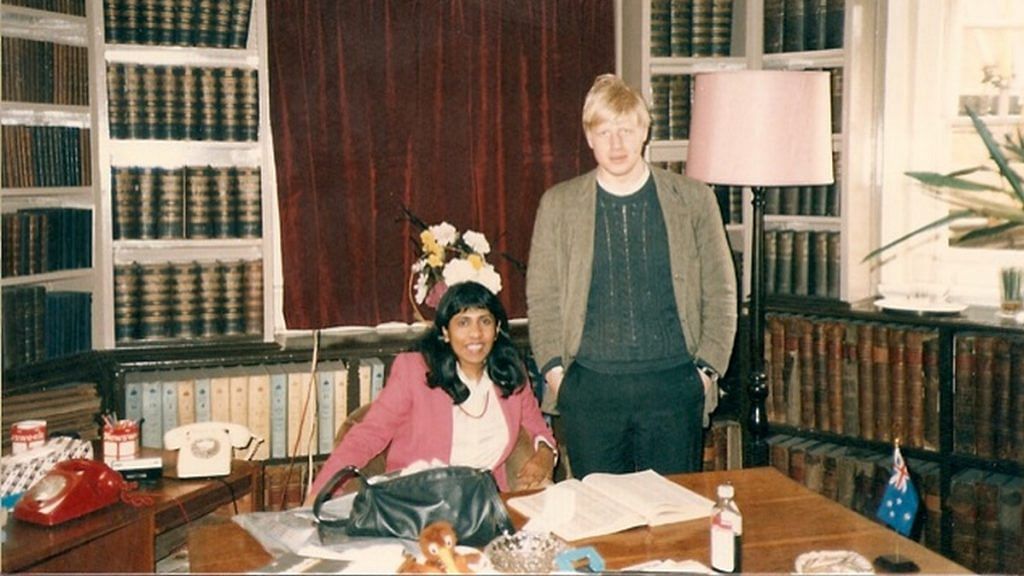On 15 March 1986, I handed over the Oxford Union presidency to Boris Johnson, which he won on his second attempt. One of the best things that happened to Boris at Oxford University was losing the election the first time he ran for president. He was too sure of himself, having come from Eton where he had been a member of ‘Pop’, which is described by Wiki as “a highly glamourous high-status elite society comprising the most popular, well-regarded, confident and able senior boys. It is thus truly an elite within an elite”.
Yet, as Boris the Classics scholar ought to have known, hubris is followed by nemesis. Boris lost the election, learnt his lesson, changed his political colours from conservative to social democrat, and waited his turn to run again for president. That same tenacity is reflected in his path to becoming the British Prime Minister. Boris will do whatever it takes to get what he wants; however long, however hard. If the prize eludes him the first time, as happened with both the Union and the leadership of the Tory party, he will not give up. Perhaps this is because he has always identified himself with Winston Churchill who said: “Never give up on something that you can’t go a day without thinking about.”
Also read: ‘Jester’ Boris Johnson is UK’s PM, now he has to keep the throne
One of the lessons that Boris learnt was that a visionary may walk alone, but not an aspiring politician. During his first attempt at the Union, Boris was often seen prowling the streets of Oxford by himself. The second time around, he accepted that solitary walks were verboten and his minders saw to it that he never walked alone but had at least one political heavyweight with him.
Details indeed tend to elude Boris, as many a critic has been quick to point out. My first encounter with Boris’ rather cavalier attitude was at the freshers’ debate at the Union. During his speech, Boris made several references to the island of Nauru, having recently returned from a gap year as a teaching assistant at Australia’s elite Geelong Grammar Timbertop campus. I found myself having to stand up time and again to challenge his factually inaccurate statements on Nauru. He came up to me later and with a disarming smile said in his Churchillian voice: “How was I to know that anyone here would know the first thing about Nauru.” Of course, he did not know that I was a New Zealander who had lived in Samoa and knew something of the region.
Also read: Boris Johnson gets his wish at last. Question is, can he actually wield power
On another occasion, Boris gate crashed the summer ball at my college, despite the two tiers of bouncers. I was also the president of the ‘junior common room’ (the college student union) at the time and threatened to have him thrown out unless he revealed how he managed to get in without a ticket. With a sheepish smile he admitted: “I said that I was your ball partner.” I knew that he was there to win votes to be Union president. How could I possibly evict someone with such inventiveness.
A memorable feature of Boris in his Oxford days was his then girlfriend and later wife, Allegra Mostyn-Owen. I recollect that she called him “Alexander”, which is his first given name and not Boris, which is his second name. A poised, incomparable beauty, Allegra permitted him to give her a haircut that would have made anyone else but her look like a forlorn, shorn sheep. The mere fact that she, a Tatler cover girl, trusted him with her hair is testament to his allure.
Also read: Narendra Modi and Boris Johnson are linked by superpower fantasies
So, how does it augur for the new Prime Minister of the UK? What is certain is that he will command centre stage, not only nationally, but also internationally. He is both clever and astute. He wields the English language with the same precision as a Samurai his sword, and has a mastery of other languages that will be invaluable in negotiating with European leaders. He has a larger-than-life personality – whether waving a kipper or a brick in the air, as he has been wont to do. He has high-level connections that will hold him in good stead. I understand that one of our Oxford contemporaries and part of the Union set, is a White House insider. A Trump-Boris love-in is indeed a tantalising prospect. Dare I suggest, however, that when the G7 meets at the end of August that Donald John Trump may well find himself eclipsed by Alexander Boris de Pfeffel Johnson.
The author (DPhil Oxon) is a political junkie currently serving on several international boards, and is at heart a hippie forever. Views are personal.
